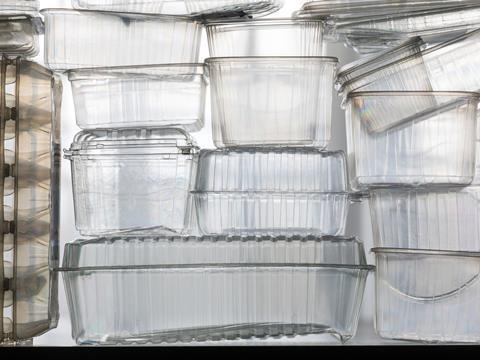
IK Industrievereinigung Kunststoffverpackungen argues that ‘material-discriminatory’ measures remain in the provisional Packaging and Packaging Waste Regulation, and it is feared that resultant loopholes will exacerbate trade conflicts and adverse environmental effects.
The Committee of Permanent Representatives agreed to a deal on the Packaging and Packaging Waste Regulation’s compromise amendments on 15th March – but the association, which brings together plastic packaging and film manufacturers across Germany, takes issue with the ‘numerous unfounded loopholes’ within.
Paper and cardboard packaging has been granted ‘unjustified privileges’ when it comes to bans, recyclate usage, and reusable packaging obligations, it asserts. In its view, these measures could increase packaging waste and CO2 emissions, as well as lower recycling rates – all of which go against the EU’s sustainability targets.
IK cautions that trade conflicts could arise from the Regulation’s last-minute “mirror clause”, in which imported plastic recyclates must comply with the same environmental requirements as those sourced within the EU to be distributed on the European market.
“We are appalled that the PPWR is to be transformed into an anti-plastics regulation,” says IK managing director Dr. Martin Engelmann. “The Commission’s continued silence on the changes is unacceptable.
“We are calling on the Commission to disclose its concerns, particularly with regard to trade barriers. It should also clarify that the massive expansion of the reusable quotas for industrial packaging to 100% is technically impossible in many cases and ecologically nonsensical and is tantamount to a ban on many types of packaging.”
To prevent ‘ecological misdirection’, IK asserts that all packaging materials should be held to the same set of rules. In its review of the compromise, the Commission is encouraged to develop ‘clear’ and ‘above all, legally secure’ regulations in order to prevent ‘a wave of lawsuits’.
“Food packaging made of paper and cardboard, for example, usually cannot do without a plastic coating, as uncoated fibres cannot retain moisture or grease,” adds Dr. Isabell Schmidt, managing director of Circular Economy at IK. “Compared to pure plastic packaging, however, they are significantly less recyclable and are also 40 percent heavier on average, which has a negative impact on energy consumption.
“The fact that they are excluded from many regulations leads to an undesirable development on the market and contradicts the EU’s principle of equal treatment.”
IK also raises the ‘incomprehensible’ example of plastic-coated packaging with less than 5% plastic content. Under the current rules, such packaging would be exempt from recyclate usage quotas and would not be held to the standards for large-scale recycling.
Additionally, it disagrees with the complete ban on 100% plastic packaging while plastic-coated single-use packaging can still be served in fast food establishments.
To reiterate its viewpoint, IK gestures towards existing studies surrounding the efficiencies and environmental impacts of certain materials – including a legal assessment from law firm Dentons, which it commissioned alongside EuPC and Elipso. The findings suggested that the Regulation’s current draft has a ‘high probability’ of discriminating against plastic and could therefore violate the EU principle of equal treatment.
Nor is the plastics industry the only sector taking issue with the Regulation in its current form. Reuse industry players have implored the European Parliament to ban single-use packaging for on-site consumption, introduce mandatory reuse quotas across all industries, and take action against loopholes in reuse measures in an open letter.
If you liked this story, you might also enjoy:
The Brief: How viable is biorecycling for plastics?
Report: How the top brands are progressing on packaging sustainability
The Brief: Using ocean-bound plastic in packaging – how, why and should we?














No comments yet